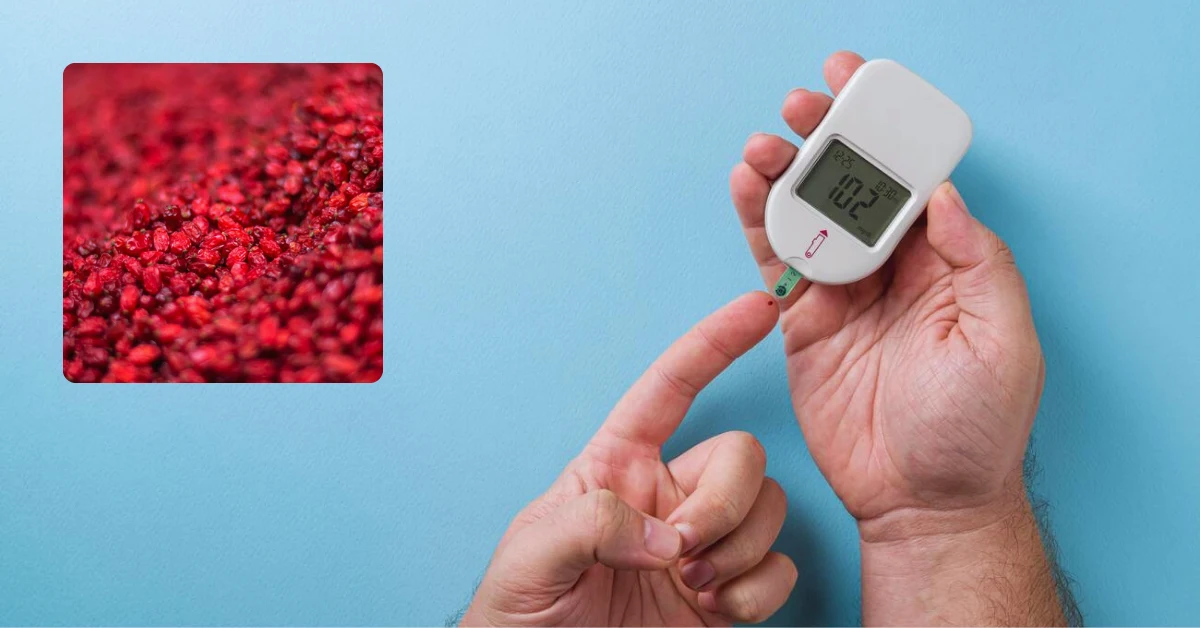Berberine, a natural compound found in various plants, has gained attention for its potential benefits in lowering blood sugar levels. As insulin resistance becomes increasingly prevalent, many people seek effective natural remedies to manage their blood sugar. In this article, we’ll explore berberine’s role in combating insulin resistance and answer the burning question: how long does it take for berberine to lower blood sugar?
Key Takeaways
- Berberine is a natural compound found in plants like goldenseal and barberry, with a history of use in traditional medicine.
- Studies suggest that berberine can improve insulin sensitivity and lower blood sugar levels, making it a promising natural remedy for insulin resistance.
- The time it takes for berberine to lower blood sugar may vary depending on individual factors, but most people experience noticeable effects within a few weeks of consistent use.
Understanding Berberine
Berberine is a yellow-colored alkaloid compound found in several plants, including goldenseal, barberry, and Oregon grape. These plants have been used for centuries in traditional medicine practices, particularly in Chinese and Ayurvedic medicine. Recently, berberine has gained popularity as a natural supplement due to its various health benefits, including its potential to lower blood sugar levels.
Also Read: How To Drink Apple Cider Vinegar For Weight Loss In 1 Week? Slim Down Fast!
Berberine And Insulin Resistance
Insulin resistance occurs when the body’s cells become less responsive to insulin, a hormone that regulates blood sugar. Over time, insulin resistance can lead to the development of type 2 diabetes. Berberine has shown promise in improving insulin sensitivity and reducing insulin resistance.
Several scientific studies support the effectiveness of berberine in managing blood sugar levels. A meta-analysis published in the Journal of Ethnopharmacology found that berberine significantly reduced fasting blood glucose, postprandial blood glucose, and HbA1c levels in patients with type 2 diabetes. These findings suggest that berberine can be an effective natural remedy for managing blood sugar levels.
How Long Does It Take For Berberine To Lower Blood Sugar?
One common question people have about berberine is how long it takes to see its effects on blood sugar levels. The answer may vary depending on individual factors such as dosage, overall health, and lifestyle habits. However, most studies and healthcare professionals report noticeable improvements within a few weeks of consistent use.
In a study published in the journal Metabolism, participants with type 2 diabetes who took berberine for three months experienced significant reductions in fasting blood glucose, postprandial blood glucose, and HbA1c levels. These results suggest that berberine’s effects on blood sugar can be seen within a relatively short timeframe.
Is Berberine Safe? Side Effects And Precautions
Berberine is generally considered safe when taken in recommended doses. However, like any supplement, it can cause side effects in some people. Common side effects of berberine include digestive issues such as diarrhea, constipation, and stomach upset. In rare cases, berberine may cause headaches, skin rashes, or low blood pressure.
It’s crucial to consult with a healthcare professional before starting berberine supplementation, especially if you have existing medical conditions or are taking other medications. Berberine can interact with certain drugs, such as those used to treat diabetes or high blood pressure, so it’s essential to discuss potential interactions with your doctor.
Read More: Four Drinks That Will Directly Boost Nitric Oxide: Sip Your Way To Better Health
Conclusion
Berberine’s potential to lower blood sugar levels and improve insulin sensitivity makes it an attractive natural remedy for managing insulin resistance. While the time it takes for berberine to show its effects may vary, most people experience noticeable improvements in blood sugar levels within a few weeks of consistent use.
If you’re considering berberine as a natural option for managing your blood sugar, be sure to consult with a healthcare professional first. They can help you determine if berberine is right for you and guide you on the appropriate dosage and precautions.
FAQs
A: The typical recommended dosage of berberine for lowering blood sugar is 500 mg, taken two to three times per day. However, it’s essential to follow the guidance of a healthcare professional to determine the appropriate dosage for your individual needs.
A: Berberine may interact with certain diabetes medications, such as metformin or insulin. It’s crucial to consult with your doctor before combining berberine with any existing diabetes treatments to avoid potential interactions or adverse effects.
A: While berberine can be effective on its own, combining it with a healthy diet and lifestyle can enhance its benefits. Focus on consuming whole, unprocessed foods, plenty of fiber-rich vegetables, and lean proteins. Avoid excessive sugar and refined carbohydrates, which can contribute to insulin resistance.
A: The duration of berberine supplementation may vary depending on your individual health status and goals. Some people may see benefits within a few weeks, while others may need to take berberine for several months to achieve optimal results. Consult with your healthcare provider to determine the appropriate length of supplementation for your needs.
References:
- Lan, J., Zhao, Y., Dong, F., Yan, Z., Zheng, W., Fan, J., & Sun, G. (2015). Meta-analysis of the effect and safety of berberine in the treatment of type 2 diabetes mellitus, hyperlipidemia, and hypertension. Journal of Ethnopharmacology, 161, 69-81. https://doi.org/10.1016/j.jep.2014.09.049
- Zhang, Y., Li, X., Zou, D., Liu, W., Yang, J., Zhu, N., … & Ning, G. (2008). Treatment of type 2 diabetes and dyslipidemia with the natural plant alkaloid berberine. The Journal of Clinical Endocrinology & Metabolism, 93(7), 2559-2565. https://doi.org/10.1210/jc.2007-2404

